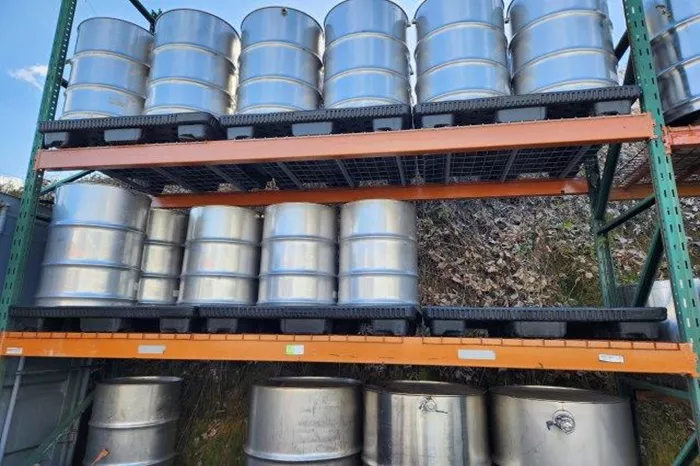In the realm of energy production and consumption, the conversion of crude oil into various refined products is a complex and critical process. One of the key products derived from crude oil is natural gas, which plays a significant role in global energy markets. Understanding how much natural gas can be extracted from a barrel of oil involves delving into the refining and processing stages that occur after crude oil is extracted from the ground. This article explores the intricacies of this conversion process, backed by data and insights into the factors that influence natural gas yields from crude oil.
Introduction to Oil Refining and Natural Gas Production
Crude oil is a mixture of hydrocarbons that requires refining to separate it into different components such as gasoline, diesel, jet fuel, and natural gas. Natural gas, primarily composed of methane (CH4), ethane (C2H6), propane (C3H8), and butane (C4H10), is a valuable energy source used for heating, electricity generation, and industrial processes. The extraction of natural gas from crude oil involves several steps, each affecting the yield and composition of the final gas product.
Distillation and Initial Gas Separation
The first stage of refining crude oil is atmospheric distillation, where the crude oil is heated to separate it into its primary components based on their boiling points. Natural gas is typically not separated in this stage; instead, the focus is on refining crude oil into more valuable liquid products like gasoline and diesel.
Gas Processing Units: Separating Natural Gas from Crude Oil
After initial distillation, residual gases and liquids from the crude oil are sent to processing units designed to extract natural gas and other valuable gases. These units include:
Gas Absorption Units: Utilize solvents to selectively absorb methane and other gases from the crude oil stream.
Cryogenic Distillation Units: Cool the crude oil to very low temperatures to separate methane and other gases by their boiling points.
Membrane Separation Units: Use semi-permeable membranes to separate gases based on their molecular size and properties.
Factors Affecting Natural Gas Yield
Several factors influence the amount of natural gas that can be extracted from a barrel of crude oil:
Crude Oil Composition: Different types of crude oil contain varying amounts of associated natural gas. Lighter crude oils generally yield more natural gas than heavier oils.
Refining Technology: Advances in gas processing technology have improved the efficiency of natural gas extraction from crude oil over the years.
Environmental Regulations: Stringent environmental regulations may impact the type and amount of gases that can be released or burned during refining processes.
Economic Considerations: The market demand and price for natural gas influence the incentive to invest in gas processing units within refineries.
Global Production and Consumption Trends
The production and consumption of natural gas derived from crude oil vary significantly across regions and depend on factors such as local energy demand, infrastructure development, and government policies. As of [current year], the largest producers of natural gas from oil refineries include [examples of countries or regions]. Consumption patterns are influenced by industrial activity, residential heating needs, and the use of natural gas in electricity generation.
See also: How Much Oil Does OPEC Produce Per Day?
Case Study: Natural Gas Extraction in the United States
The United States serves as a notable example of a country with significant natural gas production from oil refineries. With advancements in shale gas extraction techniques and refining technologies, the U.S. has increased its production of natural gas, contributing to energy independence and economic growth. The shale revolution, which began in the early 2000s, has transformed the energy landscape by unlocking vast reserves of natural gas previously trapped in shale formations.
Environmental Considerations and Technological Innovations
The environmental impact of natural gas extraction and refining continues to be a topic of debate and concern. While natural gas is considered cleaner than coal in terms of greenhouse gas emissions per unit of energy produced, methane emissions during extraction and refining processes pose environmental challenges. Technological innovations such as methane detection systems, improved flaring practices, and carbon capture and storage (CCS) technologies aim to mitigate these concerns and enhance the sustainability of natural gas production.
Future Outlook and Challenges
Looking ahead, the future of natural gas production from oil refineries will be shaped by technological advancements, regulatory developments, and shifts in global energy markets. The transition towards renewable energy sources and the electrification of transportation may influence the demand for natural gas in different sectors. However, natural gas is expected to remain a crucial component of the global energy mix due to its versatility, abundance, and relatively lower environmental impact compared to other fossil fuels.
Conclusion
In conclusion, the amount of natural gas that can be extracted from a barrel of crude oil depends on a variety of factors including crude oil composition, refining technology, and economic considerations. Advances in gas processing technologies have improved extraction efficiencies, contributing to increased natural gas production from oil refineries worldwide. As global energy markets continue to evolve, natural gas will play a pivotal role in meeting energy demands while addressing environmental challenges through innovation and sustainable practices.
Related topics:
How Much Fuel Can You Legally Transport UK?

